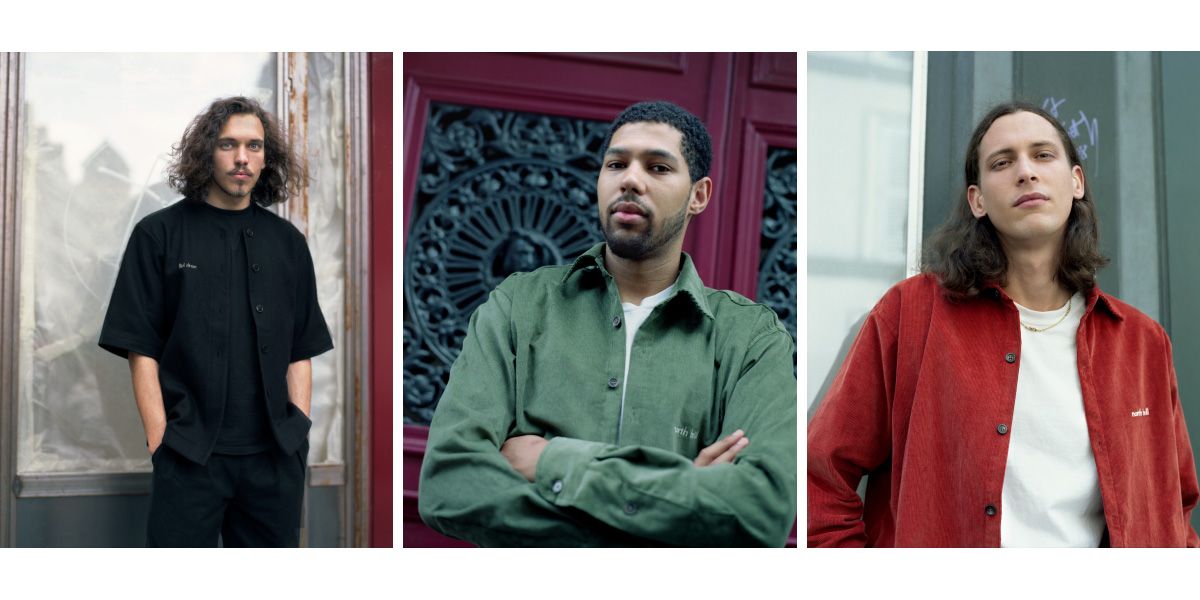Christophe
: My name’s Christophe, I’m 26 years old and I look after product development and artistic direction at North Hill..
Michael
: I’m Michael, I’m 26 years old and I’m in charge of administration and production.
Zihad
: And I’m Zihad, also 26 years old and head of press, operations, web and the atelier as we occasionally manufacture items for other companies, too.
C
: It started as a clothing line with Michael. It was more of a collective, a group of mates. We made t-shirts, had a music blog and did some events. We soon realised it was a pretty cool idea to make clothing and it could work commercially, too. We wanted to create a brand that represented us..
M
: Clothing was the best way to express our creativity and earn a living. Before, we end up doing loads of different creative projects and have nothing to show for it. Creating a clothing line felt more concrete – you create and you sell. It also felt more accessible than making music or organising events.
Z
: We also share a real entrepreneurial spirit and I think North Hill won’t be the last project we create together. We all share a sense of adventure and in general, we really enjoy it. The idea to build a structure, based around our values and create something that worked has been really interesting.
C
: The idea was to create an authentic, independent and contemporary brand. The local aspect is also really important as all our clothing is manufactured in Paris.
Z
: There’s also this idea of originality and creativity that translates into a classic collection of pieces. The result always has to be something relatively easy to wear.
M : All three of us moved to Paris when we were about 18 years old and we’ve stayed north of the city ever since. The areas around the north always interested us. That’s why we wanted to build our brand around the multicultural parts of northern Paris. The name of the brand is a reference to the steps of Montmartre – renowned for its artists and creative energy. That’s where the name for North Hill came from.
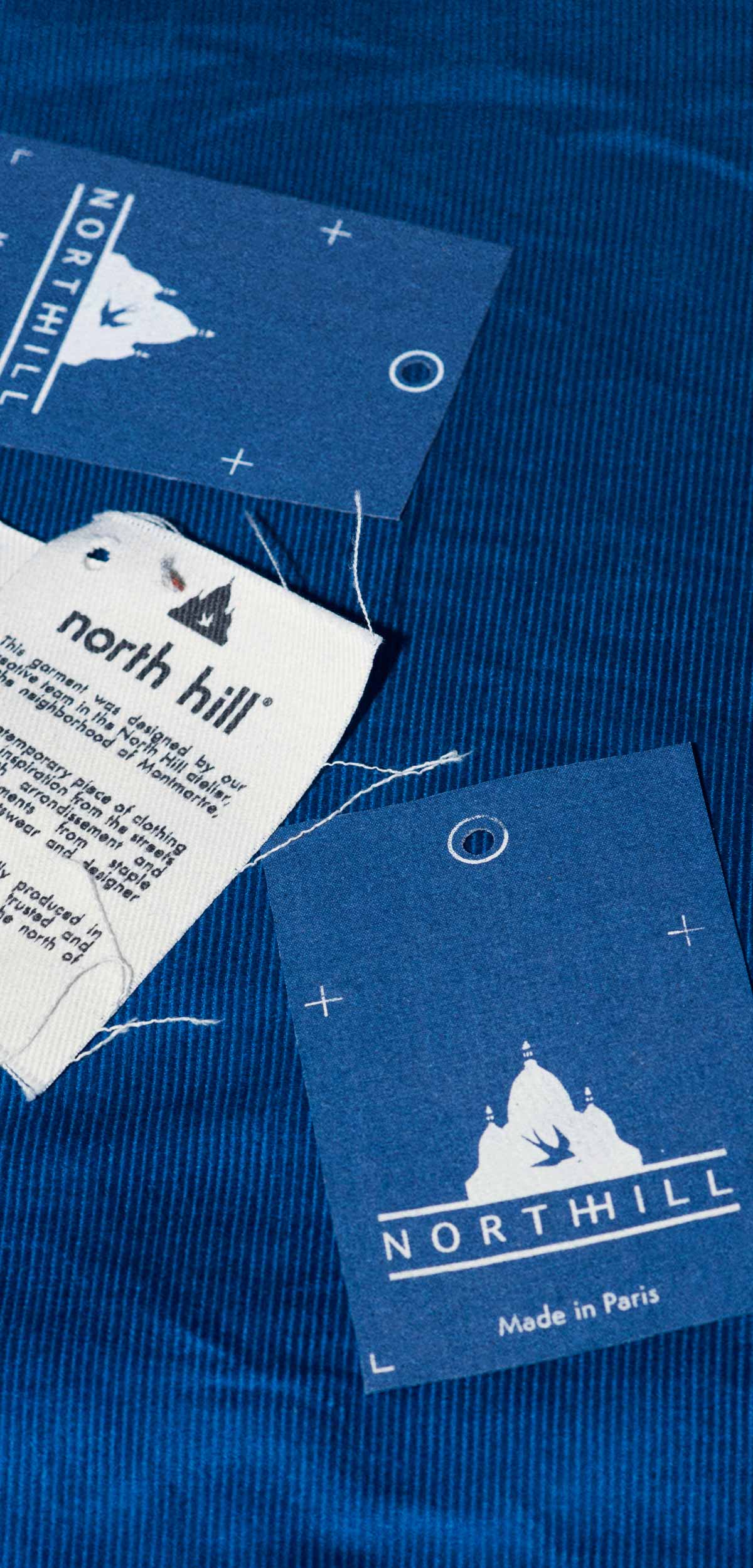
M
: We all originate from different parts of the globe – Zihad in Egypt, Christophe in Martinique and me in Burkina Faso. We really enjoy living in a part of the city that is so full of different nationalities and contrasting cultures..
Z
: Yes, in the 18th, each street has a different vibe. It’s a cultural diversity but also social, too. In less than three minutes you can pass the street preachers & hawkers in Barbès and be in the beauty of Montmartre. I don’t think many cities in the world have as many different cultures living in one space like the north of Paris.
Z
: When we started out, we didn’t know anything… we weren’t even aware of the fashion calendar and when to start creating collections for each season… It took us a while to get used to the industry and understand how it worked. And even though we started out making printed tees and now have complete collections, we still consider ourselves outsiders.
M
: Otherwise, it was really the manufacturing process that was challenging. To create collections in Paris is very complicated.
M : Our first collection was manufactured in Turkey and it was a disaster. We weren’t able to overlook the production process and we quickly realised that if we wanted to produce exactly what we imagined and be really free creatively, we’d need to be nearer. We’d need to work with people we trusted and could meet with regularly. That’s how we started manufacturing our pieces in Parisian ateliers. Today, we try to keep every part of the production process in Paris. Apart from certain t-shirts that are made in Portugal, everything is done in-house.
Z
: Manufacturing at close proximity allows us more control over the production chain. Most brands send their designs to a factory where it’s created in its entirety – from the fabric to the finished product, including everything from packaging, dyeing techniques, cut and personalisation. At each of these crucial steps, it’s not about cost but price margins, taken directly by the factory. In our case, we internalise some of those steps and supervise the production process – allowing us to reduce intermediary costs and ultimately, reduce the overall price per garment. We work with a different atelier for each stage in the process, making it more complex but allowing us to reduce margins and creative control usually taken by the factory itself. But, it’s also a choice to sell our products at affordable prices.
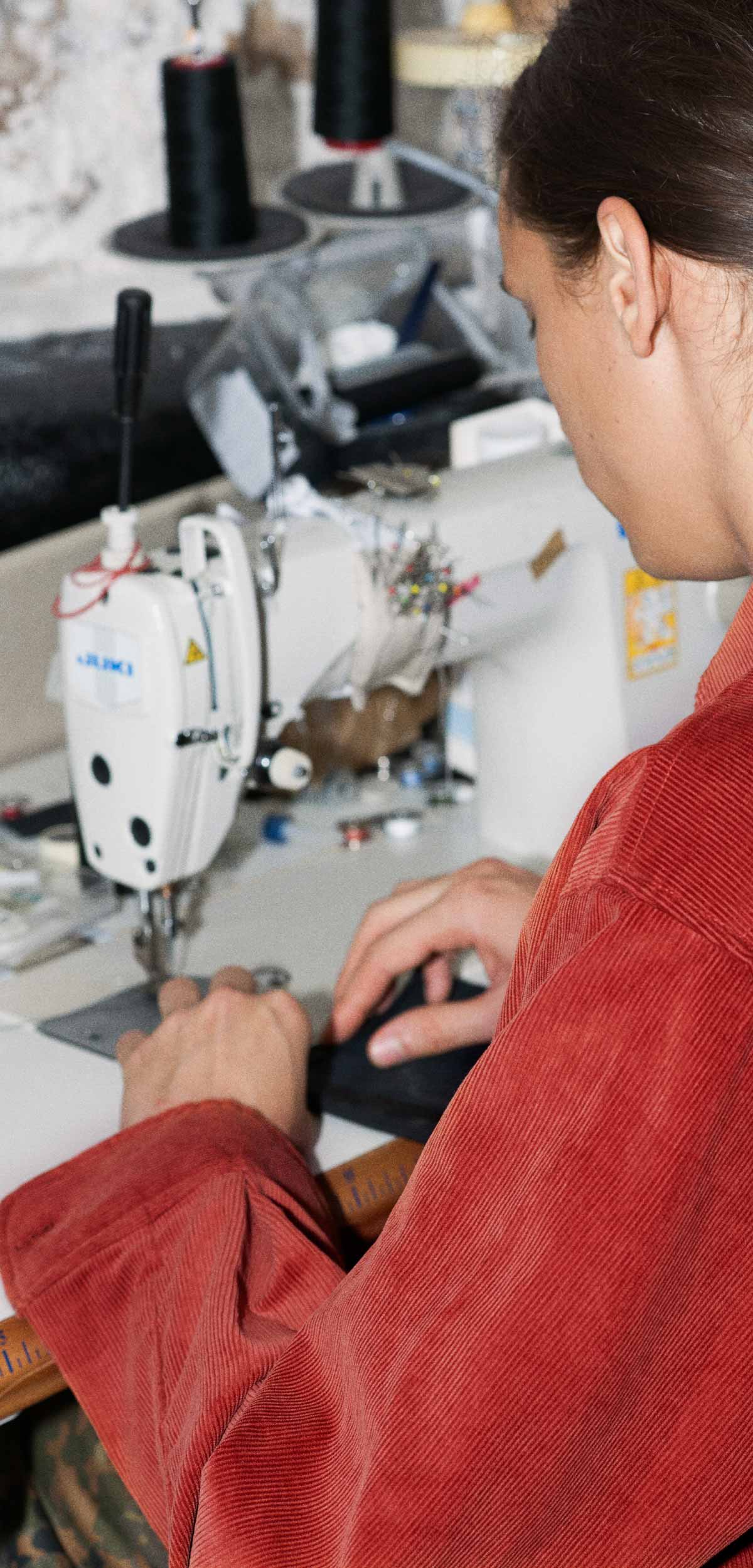
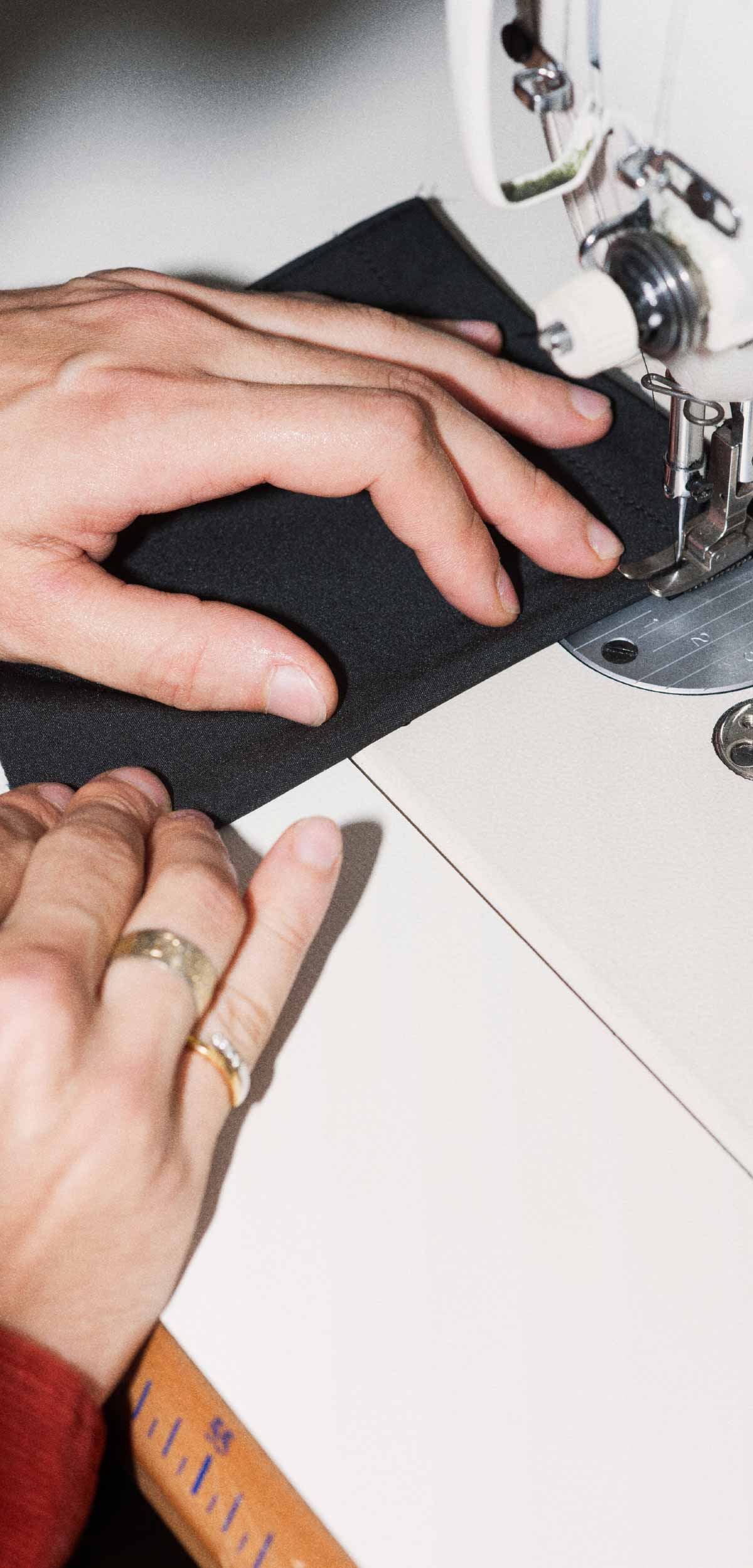
M
: For me, it’s at the heart of the brand to respect ethical rights, but when we founded North Hill, we never said we were creating an ethical brand per se. We all have strong moral values and there’s some of stuff we’ve refused to do over the years. For example, loads of brands choose to incinerate their dead stock, that’s inconceivable to us – although, we never set out to market ourselves as an ethical brand.
Z
: That’s right, when we think back, we could say we’re an ethical brand, but it wasn’t something we set out to do, it just happened naturally.
M : Each collection is inspired by a different artistic movement. We really like street-based visual media. For AW17, we were inspired by Black Panther posters and later, flyers we found in the street inspired the collection for SS18. SS19 was influenced by ripped up posters we found in the Paris metro system – it’s the everyday art that captures our attention.
M
: Christophe looks after artistic direction for the brand. We agree on the line we want to take and trust him to design the clothing.
C
: Yes, I create the mood boards and we discuss together what we like or don’t, and why. We agree with the main theme for the next collection. We also look at how the last collection performed, the products that worked. It’s important to be precise because I don’t think most young brands do that. We never lose sight of the commercial aspect of the business and we want to ensure our products continue to sell. Apart from all that, I develop a plan for each collection.
C
: I think we definitely want the clothing to represent us. It might be pretentious to say, but we quickly realised that our sense of style could speak to lots of people. We’re not out to revolutionise the fashion industry, but create original and wearable clothing.
M
: We also realise that none of us have a fashion design background. We simply make clothing that we ourselves want to wear, without heading off on a creative tangent. We respect the rules of ready to wear, whilst striving to offer something unique.
C : Traditional workwear is obviously something that inspires us. It’s the ultimate streetwear staple as it can be worn for all occasions. It’s a piece of clothing that’s 100% functional and sustainable. Concerning the uniform aspect, it’s more about wanting to create outfits that have a strong look.
Z
: Truthfully, no. We’re really busy and therefore we only worked on a few collaborations. We’re heavily focused on what we’re doing currently - and usually it’s other people that contact us and not the other way round. Saying that, we really enjoy it because music is something we feel especially close to. We’d like to develop more relationships like that in the future.
C
: Yes, because when we started out, it was music that drew us to fashion in the first place. We ran a music blog and created some merchandising on the side. We like music and musicians. Therefore, we’d like to work more closely with certain artists. We’d like to collaborate with musicians on the design of certain pieces, for example. But, at the moment, we don’t have the time to do it.
Z
: We look after the production of their textile-based merchandising. Manufacturing in Paris is pretty complicated and thanks to North Hill, we have a strong network of partners we can call on. We can, therefore, offer certain services to other brands and festivals.
M
: In my opinion, building a brand is expensive. So sub-contracting our savoir-faire allows us to finance other parts of the business.
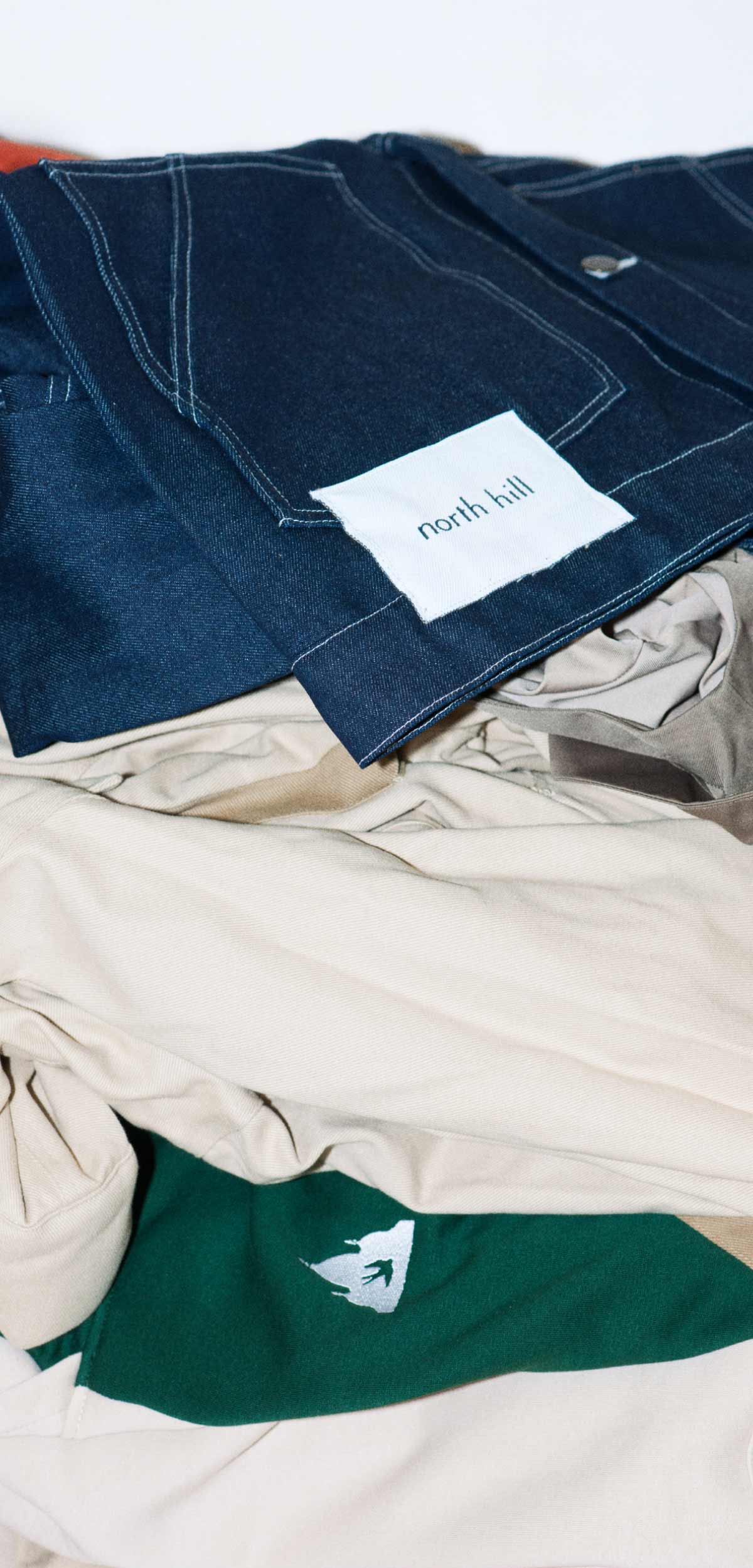
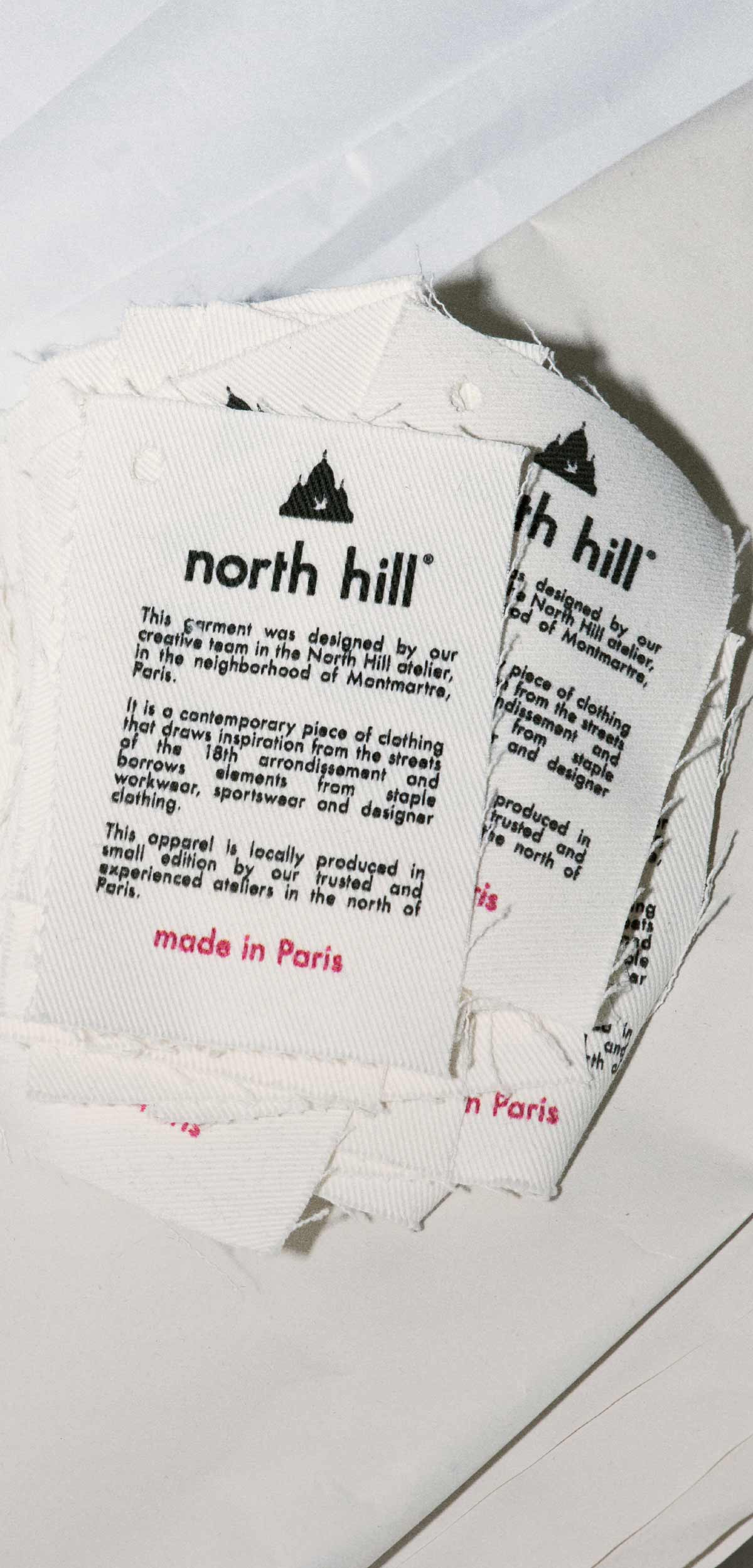
Z
: We try to find shops that offer something special with a range of brands in-line with our own. We’re not overly discerning, but in general, if everything goes well, we’ll agree to be listed, as long as the store’s selection isn’t too far from our own image.
C
: Concerning L’Exception, I’ve known Régis Pennel (L’Exception founder) for a long time. He used to organise fashion meetings. I went to one of these as an intern for a magazine called WAD. That’s how we met. L’Exception always stayed with me and when we launched the brand, I contacted Régis. Then one day, he turned up at our showroom during fashion week and placed his first order for L’Exception.
Z : We’d like to change the atelier and open a store, move into a larger space where we can welcome customers and sell in-house. When we first opened the atelier, we’d invite our friends – and friends of friends to join us on Thursdays. Today, that’s impossible as there’s no space left! We’d like our atelier to be a place where people could meet, make connections, collaborate and give birth to new ideas.
Z
: Oversized clothing from the 00s and buying tees from Ekirok at Rue Saint-Denis.
C
: Nike polos by Roger Federer and fanny packs from Lacoste.
M
: Making t-shirts for my friends at school when I was 12 or 13 years old – I would print them and sell for 10 euros each – I was so proud of myself.
Z : Each monday we share our playlist on @northhillparis.
Z
: Impossible to choose but Moonlight is probably one of the best films I’ve seen in years.
M
: The Godfather.
C
: Anything from the Coen Brothers.
Z
: North Hill clothing!
C
: The record stores at Marché Dauphine , in Saint-Ouen.
Z
: The Bellerive, at 71 quai de la Seine.


